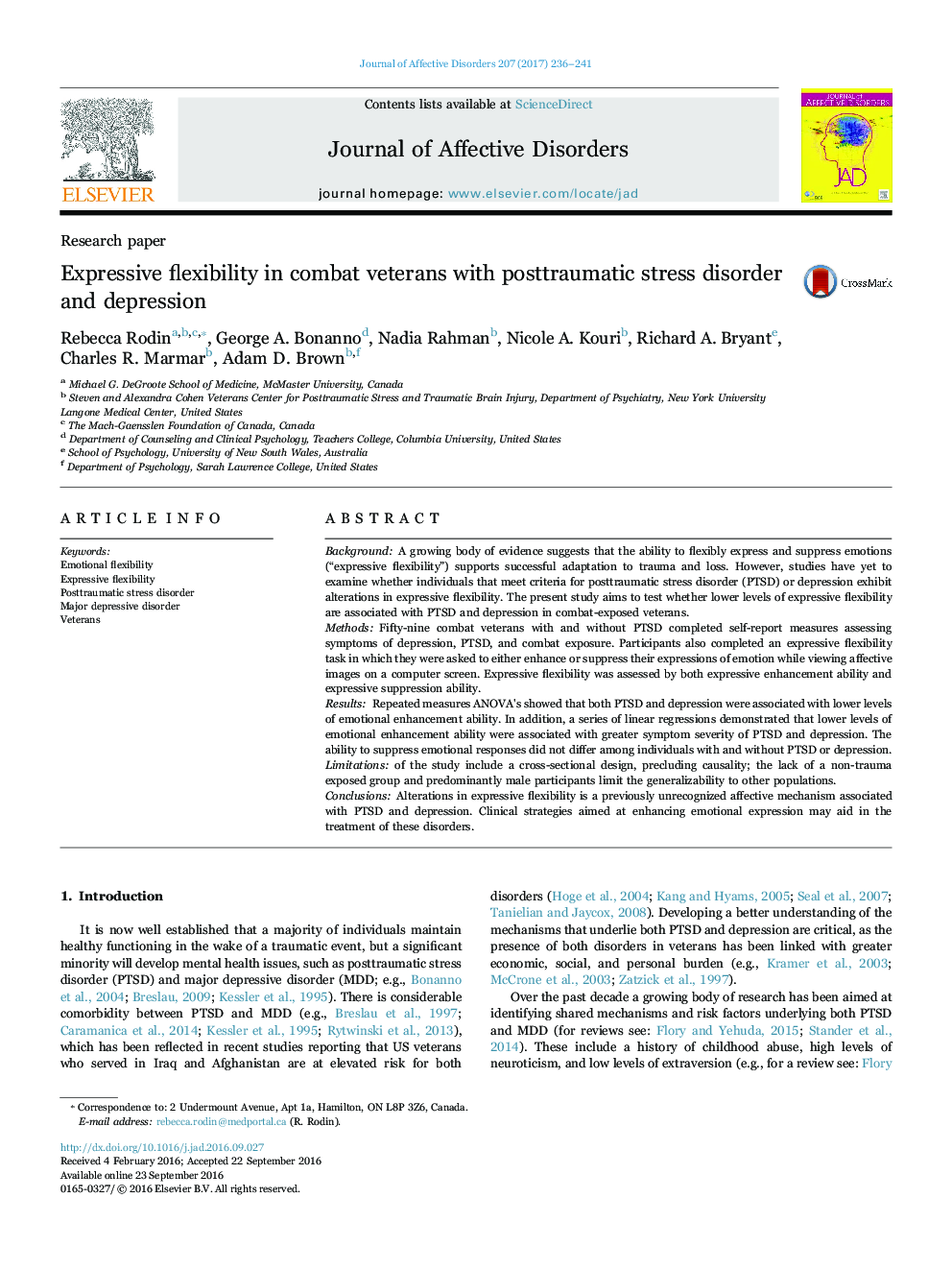| کد مقاله | کد نشریه | سال انتشار | مقاله انگلیسی | نسخه تمام متن |
|---|---|---|---|---|
| 6229516 | 1608118 | 2017 | 6 صفحه PDF | دانلود رایگان |
- Tested expressive flexibility paradigm in OEF/OIF combat veterans.
- Lower levels of emotional enhancement were associated with diagnoses of PTSD and depression.
- Lower levels of emotional enhancement were associated with PTSD and depression symptom severity.
- Alterations in expressive flexibility may reflect a mechanism in these disorders.
BackgroundA growing body of evidence suggests that the ability to flexibly express and suppress emotions (“expressive flexibility”) supports successful adaptation to trauma and loss. However, studies have yet to examine whether individuals that meet criteria for posttraumatic stress disorder (PTSD) or depression exhibit alterations in expressive flexibility. The present study aims to test whether lower levels of expressive flexibility are associated with PTSD and depression in combat-exposed veterans.MethodsFifty-nine combat veterans with and without PTSD completed self-report measures assessing symptoms of depression, PTSD, and combat exposure. Participants also completed an expressive flexibility task in which they were asked to either enhance or suppress their expressions of emotion while viewing affective images on a computer screen. Expressive flexibility was assessed by both expressive enhancement ability and expressive suppression ability.ResultsRepeated measures ANOVA's showed that both PTSD and depression were associated with lower levels of emotional enhancement ability. In addition, a series of linear regressions demonstrated that lower levels of emotional enhancement ability were associated with greater symptom severity of PTSD and depression. The ability to suppress emotional responses did not differ among individuals with and without PTSD or depression.Limitationsof the study include a cross-sectional design, precluding causality; the lack of a non-trauma exposed group and predominantly male participants limit the generalizability to other populations.ConclusionsAlterations in expressive flexibility is a previously unrecognized affective mechanism associated with PTSD and depression. Clinical strategies aimed at enhancing emotional expression may aid in the treatment of these disorders.
Journal: Journal of Affective Disorders - Volume 207, 1 January 2017, Pages 236-241
